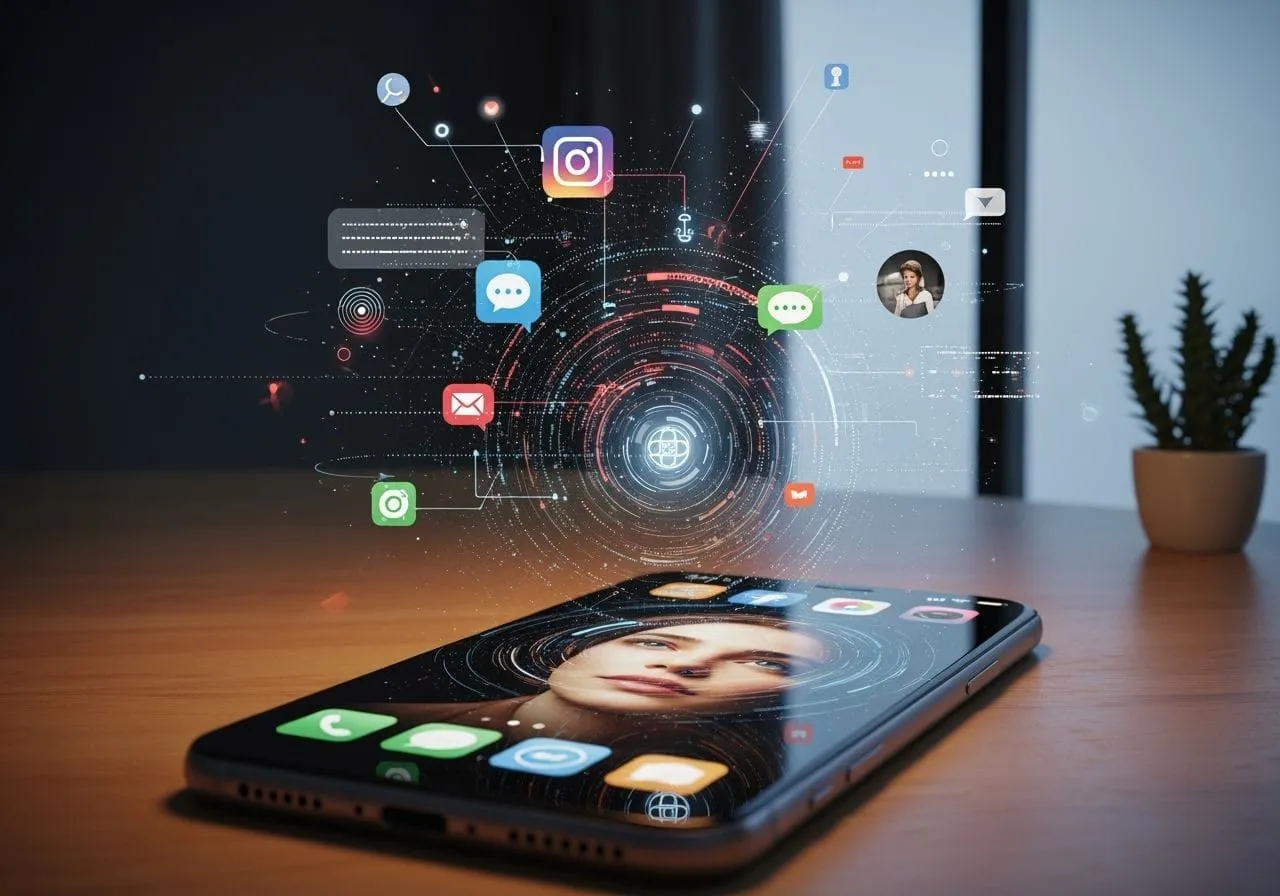Your phone used to be a simple tool—check the weather, fire off a text, waste some time scrolling. Now? It’s an undercover agent, tracking your every move and knowing more about you than you do.
The truth? These devices were never just for convenience—they’ve evolved into tools that shape the way we experience everything. The algorithm doesn’t need to be sneaky, but it sure is smart. It’s not some dark conspiracy, it’s just the quiet reality of how our data is being used to predict our next move. And the worst part? We’re letting it happen without even asking for clarity.
Like What You Read? Dive Deeper Into AI’s Real Impact.
Keep Reading- AI’s Listening: Phones track your emotions, shaping your relationships.
- The Price: Personalization is a profit-driven game.
- AI predicts your needs, but are you still in charge?
The Hidden Ears of Your Digital World
Sure, you can scroll through your social media feed and post selfies with your friends or significant others—but what you might not know is that those simple interactions are being fed to an AI algorithm. Every like, comment, and post is being processed to understand your emotional state and relationships better than you ever thought possible.
Let’s be honest—apps don’t just want your data for ads. They want to understand you. They want to know what makes you tick. How else do you think your messaging app knows when to suggest “heart” emojis after an argument with your partner or serve you dating app ads the day after a tough breakup?
Emotional Surveillance: More Than Just Your Data
So what makes these apps so eerily accurate? Emotional surveillance. It’s not just about selling—it’s about predicting what’s coming next and giving you exactly what you didn’t even know you wanted.
Emotional surveillance isn’t just an app feature—it’s an emerging industry. And the scary part? We’re just beginning to scratch the surface of how much this industry is worth—and how deeply it’s influencing everything from political decisions to consumer behavior.
The Price of “Personalized” Connection
But let’s take a second to ask: is it really worth it? The more personalized the algorithm gets, the more it takes over our emotional landscape. What used to be simple human interaction is now filtered through a lens of commercial intent. Your real-life moments and conversations? They’re just more data points for the algorithm to chew on.
Sure, it can make our online interactions more “relevant,” but in doing so, we’re sacrificing a bit of ourselves—allowing an algorithm to shape how we view our connections with others, what we value in relationships, and what we need to fix. The more the algorithm listens in, the more it gets to shape not just what we buy but how we relate to each other. And let’s be real: that’s a lot of power for a set of algorithms with no emotional stakes of their own.
Are You Really In Charge?
So here’s the real question: when apps are listening, watching, and learning from every small interaction, are you still in control of your own relationships? Or has the algorithm taken the driver’s seat?
AI’s deep dive into our emotions isn’t just an invasion—it’s a makeover. The emotional surveillance isn’t just tracking us to understand us; it’s molding us into more predictable consumers. The more AI knows what we need, the more it can sell it to us. But what happens to our sense of self when we start acting more like the data points we’re being sold? The question isn’t if AI can make us smarter shoppers, but whether it can make us better humans.
Emotional Data Isn’t Just Data—It’s Power
It’s time we recognized that emotional surveillance is no longer a distant worry—it’s the present. Your relationships, your feelings, your connections are now being watched, interpreted, and packaged for sale.
You might brush it off as coincidence, but when an ad targets you right after an emotional exchange, you’re witnessing the quiet exchange of personal data for profit. That “perfect” product didn’t just appear—it was calculated. But the real question is—did we ever ask for it? And what does it mean when we let the algorithms take over the most human part of our lives?



